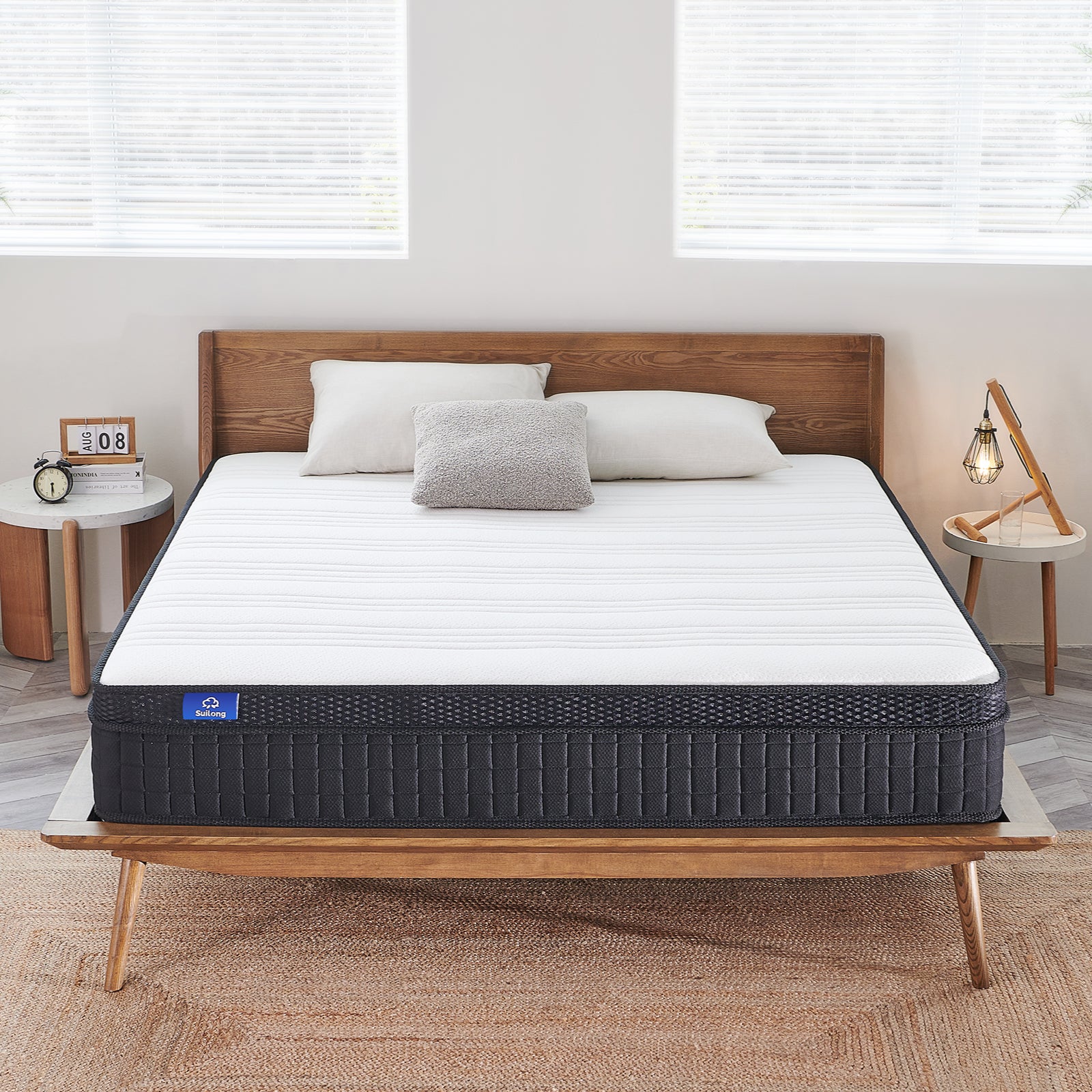How To Fixing Your Sleep Schedule

Did you know. Nearly 70% of people say they don't get enough or quality sleep. If you clicked in, you probably wondered the same thing. Fortunately, sleep routine adjustments may be the key to improving your quality of sleep. Read on to explore the various factors that affect your sleep and learn how you can adjust your sleep to your biological clock for an energising every day!
Why is a sleep routine so important?
The foundation of physical health: consistently good sleep helps regulate blood sugar and reduce the risk of heart attack, while helping the body repair damaged tissues and muscles and improve immune function.
Mental and Emotional Stability: A good sleep cycle aids in the recovery of cognitive function, which can improve concentration, decision-making and creativity, while reducing mood swings and anxiety.
Improved work and study efficiency: Continuous late nights can affect our memory and learning ability, while regular sleep helps consolidate memory and absorb learning information.
Enhanced socialisation and quality of life: lack of sleep can affect your mood and may lead to greater impatience and impulsivity when communicating with others.

What role does the biological clock play in sleep patterns?
What is the biological clock: The biological clock is an internal rhythm that controls many of our body's physiological functions, such as body temperature, hormone production and waking state.
Biological Clock and Sleep Patterns: When you go against your biological clock, such as working in night owl mode, it can lead to hormonal imbalances, which in turn can affect your sleep.
Biological clock and health: Breaking the biological clock can lead to an increased risk of health problems such as cardiovascular disease, obesity and diabetes.
How are sleep patterns disrupted?
Influence of lifestyle habits: Frequent night work, alcohol consumption or excessive caffeine intake may affect deep sleep.
Disturbances from environmental factors: Unsuitable room temperature, excessively bright or flickering lights and constant noise can interrupt your sleep.
Interference of psychological stress: Anxiety, stress and depression may keep the brain in a constant state of high alert, making it difficult to fall asleep.
Interference of health problems: such as apnoea, nocturia or other medical problems may affect your sleep patterns.

How can I adjust my sleep patterns?
Understand your personal biological clock: Take a week to record your natural falling asleep and waking up times to find the optimal sleep window.
Establish a reasonable routine: Make sure you go to bed and wake up at the same time every day to gradually adjust your biological clock.
Improve your sleep environment: Consider investing in blackout curtains, sound proofer or white noise machines. Factors such as temperature, humidity and air quality are also important.
Adopt a good routine: Avoid excessive fluid or caffeine intake after dinner, and set your mobile phone and computer to "night mode".
Choosing the right mattress to regulate your sleep pattern
Types and features of mattresses: Memory foam, latex, spring and other mattress types all have their own unique comfort and support.
How to choose the right mattress: Everyone's body structure and preferences are different, and choosing a mattress requires consideration of your body weight, sleeping position, and any possible health concerns.
Expert opinion: What do sleep experts say about sleep patterns?
From a medical point of view: Not only the length of sleep, but also the depth and sleep cycles affect your health to a great extent.
From a psychological perspective: A stable sleep pattern helps with mood management and reduces the risk of anxiety and depression.

Common Misconceptions and Answers
Common misconception about sleep patterns: "I can catch up on sleep on the weekends." In fact, a regular sleep pattern is far more beneficial than prolonged periods of irregular sleep.
The right idea of sleep: understand and respect your biological clock; gaming it will only make you more tired.
For the sake of physical health, emotional stability and productivity, a proper sleep routine cannot be ignored. Remember, everyone's biological clock is unique, but with consistent effort and adjustment, we can all achieve optimal sleep patterns. Now that you have all the knowledge you need to adjust your sleep routine, it's time to practice and enjoy a great night! If you found this information helpful, share it with as many people as possible and together we can welcome more quality sleep time!
Read More:
https://suilong.org/blogs/blogs/a-full-breakdown-of-bed-frame-options-for-hybrid-mattresses
https://suilong.org/blogs/blogs/full-vs-queen-mattress
FAQs
Q: How do I make my sleep schedule perfect?
A: To optimize your sleep schedule, maintain a consistent bedtime and wake-up time, avoid caffeine and electronics before bed, and create a calming bedtime routine.
Q: How long does it take to adjust to a new sleep schedule?
A: It typically takes about one to two weeks for your body to fully adjust to a new sleep schedule. Consistency is key during this transition.
Q: Why is my sleep schedule so bad?
A: Poor sleep schedules can be caused by irregular sleep habits, stress, excessive screen time, and an inconsistent bedtime routine. Identifying the underlying causes is important for improvement.
Q: How do I reset my internal clock?
A: Gradually shift your sleep schedule by going to bed and waking up 15-30 minutes earlier or later each day until you reach your desired sleep schedule. Exposure to natural light during the day can also help reset your internal clock.
Q: Does pulling an all-nighter reset sleep cycle?
A: No, pulling an all-nighter can disrupt your sleep cycle further. It's best to avoid all-nighters and focus on maintaining a regular sleep routine.
Q: Why do I wake up at 3am?
A: Waking up at 3am could be due to stress, anxiety, poor sleep quality, or an irregular sleep schedule. Addressing the underlying factors can help prevent early awakenings.
Q: What is middle insomnia?
A: Middle insomnia refers to waking up in the middle of the night and having difficulty falling back asleep. It can be caused by stress, anxiety, or medical conditions.
Q: Can I take melatonin at 3am?
A: It's generally not recommended to take melatonin at 3am as it might disrupt your sleep cycle further. Consult a healthcare professional before using melatonin supplements.
Q: How do I break my morning anxiety cycle?
A: Establish a calming morning routine, practice deep breathing or meditation, avoid checking emails or news first thing, and focus on positive thoughts to manage morning anxiety.
Q: What is 3 3 3 rule for anxiety?
A: The 3 3 3 rule is a technique to manage anxiety. Acknowledge three things you can see, three sounds you can hear, and move three parts of your body. This grounds you in the present moment.
Q: How do I stop negative thoughts in the morning?
A: Practice cognitive reframing by challenging negative thoughts with evidence and positive alternatives. Engaging in positive activities and mindfulness can also help shift your mindset.
Q: Why do I wake up dreading work?
A: Waking up with dread about work could be due to job-related stress, dissatisfaction, or a poor work-life balance. Consider seeking support, setting boundaries, or exploring career changes.
-
Posted in
Lifestyle, Mattress Tips, Shopping Tips, Side Sleepers, Sleep Experts, sleep position, Sleep Tips, sleeping positions, the type of mattress
















